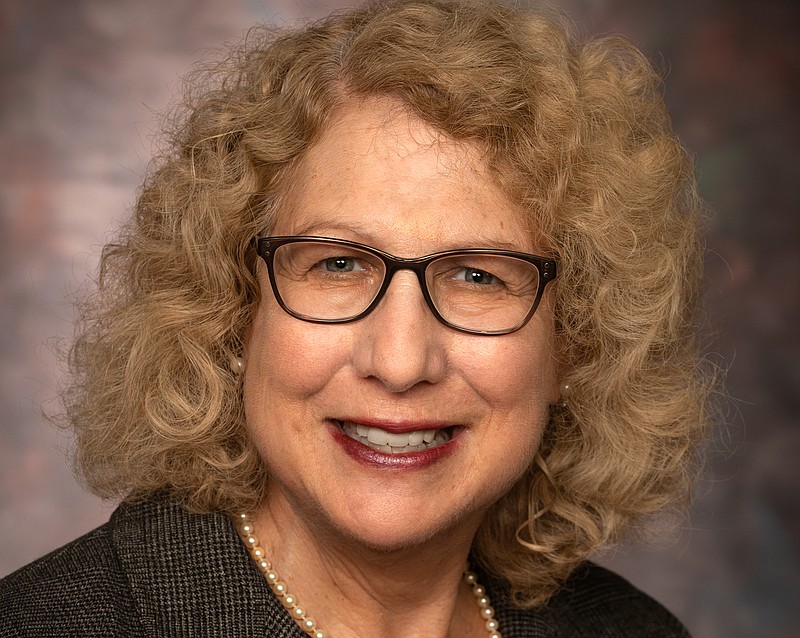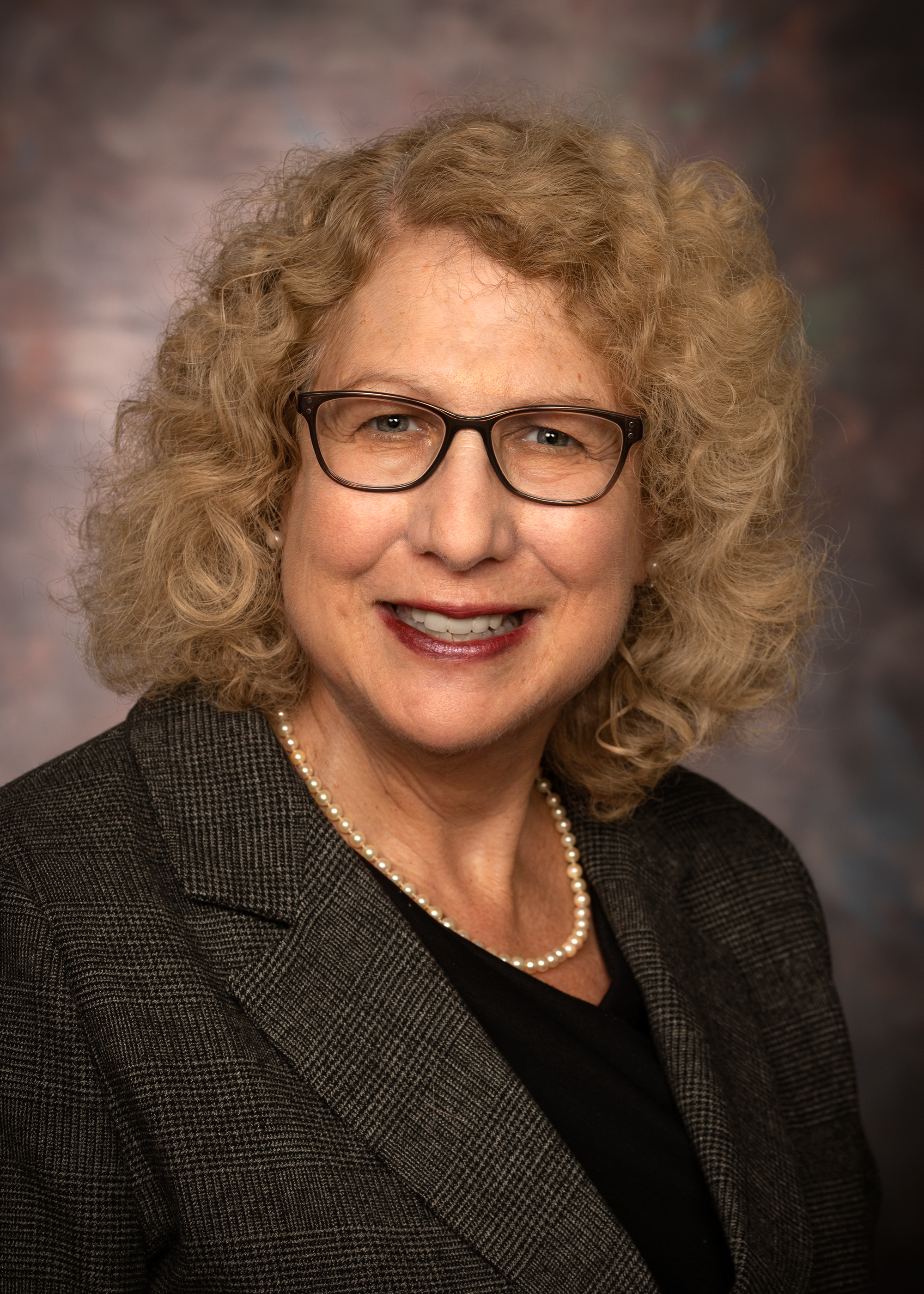For more than 25 years, Debra Dubow has worked in global industries including pharmaceuticals, health care, financial services and the automotive industry to help leaders and their teams manage and thrive through change. As a consultant and coach, most recently for an international pharmaceutical company, Dubow's work has particularly focused over the last year on how to build resiliency and move forward through extraordinary and fast-evolving challenges. Dubow, who moved to Chattanooga in July 2019 from Michigan, says the tools she uses have never been more critical. "It's really important to slow down and build resilience," she says.
This interview has been edited for length and clarity.
Q: The word 'unprecedented' gets thrown around a lot these days, but for good reason. How do the principles for navigating rapid change apply to a time when every element of change is heightened to such a degree?
A: A lot of us, because we feel so out of control right now - so much we took for granted is completely out of our control, there's so much uncertainty and ambiguity - our natural tendency is to want to control what we can't control. That is not the best response. With the organizations I work with, I talk about the VUCA world, and VUCA stands for volatility, uncertainty, complexity and ambiguity. In a VUCA world, you have to go into the change and be present in the moment. A lot of mindfulness comes into play. The company I'm working with is offering daily meditations for people. I can't control what happened, the past is the past, the future I do not know, but in the moment I can breathe, I can take a walk outside and be with you like I am right now. It's important that we use our sensing skills and emotional intelligence skills to be aware and to understand what's going on with me in this moment. It's OK to acknowledge that I don't feel OK right now. Resilient people are able to recognize their feelings, acknowledge that, connect with others, ask for help, but have a positive outlook and understand I've been in hard spots before and overcome adversity. I have the strength to overcome it.
Q: How does that look day-to-day?
A: For example, we always start meetings checking in with each other and having more authentic conversations, saying how are you really doing, having deeper conversations before jumping into the meeting. We're acknowledging that people are having different challenges, being more empathetic and vulnerable. That applies to leaders, as well. It's important to not be so heroic and to say, this is difficult and I'm challenged.
Q: How can people embrace these challenges honestly and still get their work done?
A: This company has been getting the (COVID-19) tests and the antibodies out, creating some of the drugs to help with the terrible symptoms, so the purpose and the mission is quite compelling. The drug trials have been done in a remarkable amount of time - things that would take years have taken months. It's amazing, and so you feel such pride and purpose. When I see resilience, I see people working around the clock to get what patients need. That's a lot of resilience, is waking up with a sense of purpose and a sense of what matters most, but also not being a perfectionist. Especially now, cut yourself some slack and give yourself some credit. Don't go to all the meetings; go outside and take a walk. There's flexibility, there's understanding it's not one way for everybody. You have to do what works for you, and you have to do self-care, be compassionate and non-judgmental to others. You have to be curious and open to experimentation, willing to say, I don't know all the answers. There's so much I don't know, I'm allowing myself permission to not know, and I need to approach things with a beginner's mind, to allow myself to be curious, ask questions and discover, to see what I'm going to learn from this experience.
Q: Are there new or different tools and principles that need to come into play at a time like this, or a reorienting of how you use them to adapt?
A: I think it's accelerating these tools or putting them on steroids. We all heard about mindfulness for years, but how much did we really practice? Self awareness is at the essence of all of this, but a lot of times we didn't pay attention before and we have to do more and more of this and it requires more experimentation - giving up the knowing, giving up being the expert, those things we had before.
Q: How has this crisis changed what your clients need from you, and how they're working with you?
A: Right now what they're having to do more of is a lot more teamwork and collaboration and the challenge of working virtually and the communication of working virtually. You still have to have expectations, but there's more checking in and creating team norms and having dialogue about how you're going to work. We're all kind of overloaded - there's more permission and flexibility, but we all still have to get the work done. You have to have discussions and agreements about how you work. I work around the world, but during the middle of the day in California, lunchtime is off limits. We leave chunks of time between meetings. None of these things are things I didn't have people do before, but now it's a sudden discovery that, oh we really have to do this. I could do back-to-back meetings when I got to walk to another meeting. They still have a ton of meetings, but now it's making people think about how many meetings can they really have. They have to go out and exercise.
Q: What are some of the most important things individuals can do to adapt and even thrive at such a challenging time?
A: They almost have to put in their calendar - block their calendar with certain times for reflection, for learning, exercise, time for meditation. You have to block time for reflection. Everyone should do that - once a day, once a week - what happened this week that went well? What did I learn about myself this week? What do I want to change? If you don't allow time for reflection, you can't get better. In 2021, I'm taking Fridays off for development time for my business. That was a deliberate thing. It's worth losing the money - I can't be at a computer five days a week nonstop. These are things if you have the privilege to do that, there are things we can control. The idea is not to allow ourselves to be a victim and to think really carefully about what can I control, prioritizing your values, what's my purpose and what matters to me most.
Q: What are the specific challenges of leadership at a time like this, and what should leaders do to help their teams?
A: Listen, check in, there's a tremendous need for empathy and to show their own vulnerability and be human themselves. We've all been touched personally, we change because of our own pain and we've all been touched by pain. There's been a tremendous amount of mental illness during this time, and that causes us to be more vulnerable and experience it firsthand, but there are still leaders that aren't capable of empathy and tuning in because it's threatening and they're not able to see through their own defenses.
We have to bring our whole selves to work because people are seeing you on your screen, seeing your dog and your kids, a senior leader is sitting at home, and we all look alike in this setting. Their kid interrupts them as much as anyone else's kids. I think that's where there is the glass half full. It's a time of more humanness, there's never been a more accepting and connecting time and seeing what really matters and looking at our values. I feel really hopeful we can learn from this and look back at this and not forget what we've learned.

